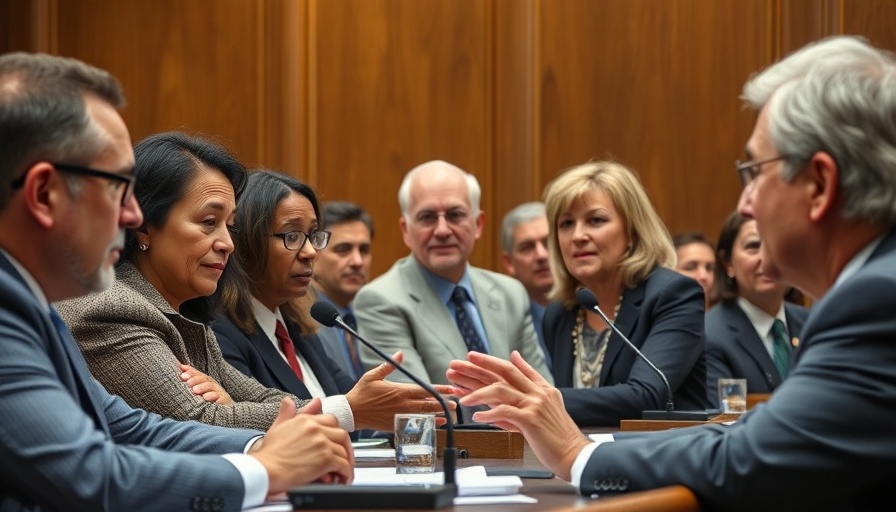
New Measures to Shield Children’s Online Safety
An Arkansas House committee has taken a significant step towards enhancing children's privacy and safety in the digital age. On March 12, 2025, two crucial bills were advanced that closely resemble stalled federal legislation designed to regulate online interactions involving minors.
The measures—House Bill 1717 and House Bill 1726—are aimed at tackling the myriad challenges faced by youth online, particularly in terms of mental health and privacy. These components reflect a growing acknowledgment of the harmful effects of unregulated online exposure on children and adolescents.
Understanding the Arkansas Children's Online Safety Act
One of the highlights of this legislative movement is the Arkansas Kids Online Safety Act (KOSA), included in HB 1726. The bill seeks to implement default settings on social media accounts that are protective of minors, thereby minimizing their exposure to harmful content. Parents will have greater oversight by being allowed to monitor these settings directly.
Moreover, KOSA aims to restrict minors from making financial transactions online and prohibits advertisements for alcohol, tobacco, and gambling directed at younger users. The legislation mandates that social media algorithms should be transparent, allowing users insight into why they are shown certain content. Such measures empower parents and help safeguard children from unnecessary exposure to potentially damaging materials.
The Need for Enhanced Protection
With children as young as two years old accessing mobile devices, the impact of the internet on mental health cannot be understated. Pediatric experts highlight that excessive screen time and exposure to social media can lead to issues such as anxiety, depression, and eating disorders.
Rep. Zack Gramlich, a leading sponsor of these bills, emphasizes that while adults may consciously navigate these digital spaces, minors lack the cognitive capacity to engage with them critically. This differentiation is at the core of why protective measures are deemed necessary.
Anticipating Future Challenges
Despite the steps forward, the path remains fraught with challenges. The bills’ effective date is set for July 1, 2026, which allows ample time for adjustments by technology companies. Critics, however, argue that this timeline could delay real change and question whether technology firms will adapt without immediate accountability.
Legislators remain optimistic, confident that bipartisan support and a proactive approach will spur necessary reforms in light of burgeoning concerns over youth online safety. The conversation is not just focused on reliance on federal solutions, as Arkansas looks to lead by example.
Why These Changes Matter for Parents
For parents navigating the digital landscape with their children, knowledge of these legislative advances is crucial. With a more robust framework in place for dealing with online interactions, parents are now better equipped to support their children's digital experiences.
The ability to monitor account settings and hold businesses accountable heralds a move towards a more trusting online atmosphere. Parents' concerns regarding their children's exposure to predatory practices and harmful content can potentially be alleviated through enhanced regulations.
The Role of Community Engagement
As both legislation provides for public engagement, including a Kids Online Safety Council, community involvement will play a pivotal role in shaping these standards. This council will not only consist of parents and educators but also include mental health experts and representatives from online platforms, ensuring that diverse perspectives are accounted for as these laws are implemented.
Consequently, parents should stay informed about how these changes will ultimately impact their children, engaging with local discussions about digital safety and advocating for their children's well-being.
Conclusion: Staying Aware and Engaged
As Arkansas gears up to implement these protective measures, awareness among parents is paramount. Understanding the evolving landscape of children's online safety will enable parents to better navigate their children's experiences in the digital age. Remaining proactive and engaged can foster a safer online environment for younger generations.
 Add Row
Add Row  Add
Add 




Write A Comment